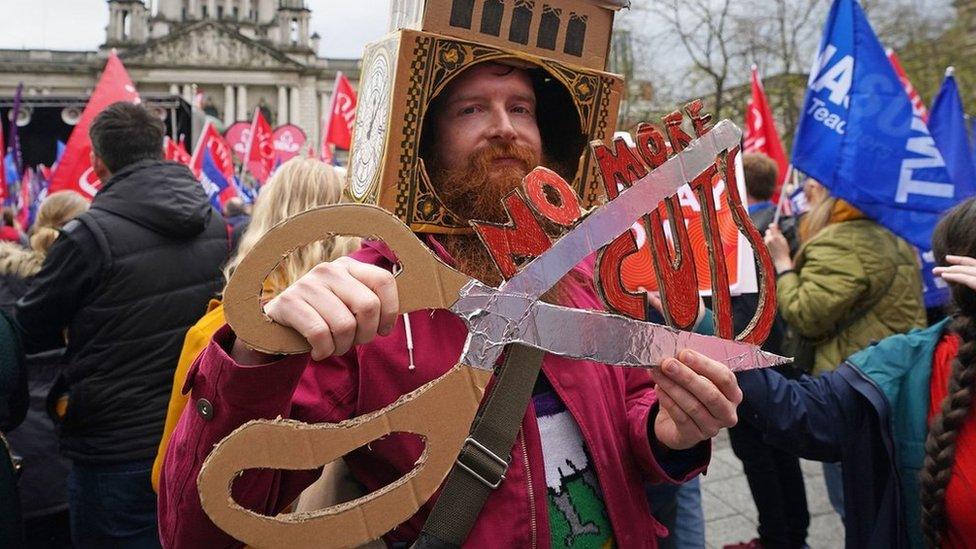NI economy: Budget watchdog warns of job cuts over pay claims
- Published

More strike action or job cuts could result from continued pressure on public sector pay budgets in NI, an independent watchdog has warned.
The Northern Ireland Fiscal Council (NIFC) has published its initial analysis of Stormont's budget.
That budget contained one-off funding from the UK government to help settle pay claims and end strikes.
The NIFC has warned of the budgetary risks when that extra funding is exhausted.
It said that "making use of temporary, one-off funding to initiate recurrent pay settlements causes long-term pressure on the executive's finances".
School support workers such as bus drivers, classroom assistants and canteen staff will strike for several days in May and June.
Workers in the Unite, GMB and Nipsa trade unions are taking action over pay and grading.
The funding deal from the UK government, which helped restore devolution, included ôÈ584m for 2023/24 to meet the cost of backdated pay awards.
There is a further ôÈ520m of "stabilisation funding" for 2024/25 and 2025/26 which the executive can use for any purpose.
The NIFC says that in practice that money "will be swallowed up by pay".
The Department of Finance has told departments to plan on the basis of 3% pay growth and to find that money from their new budget allocations.
The NIFC says this means all departments start the fiscal year facing "an in-built wage-cost pressure" and warns "this might require further headcount reductions in some departments or could result in further strike action".
It adds that the executive has the option of proposing a policy of pay restraint which "however unpopular and difficult, would improve the manageability of the NI public finances".
Related topics
- Published28 April